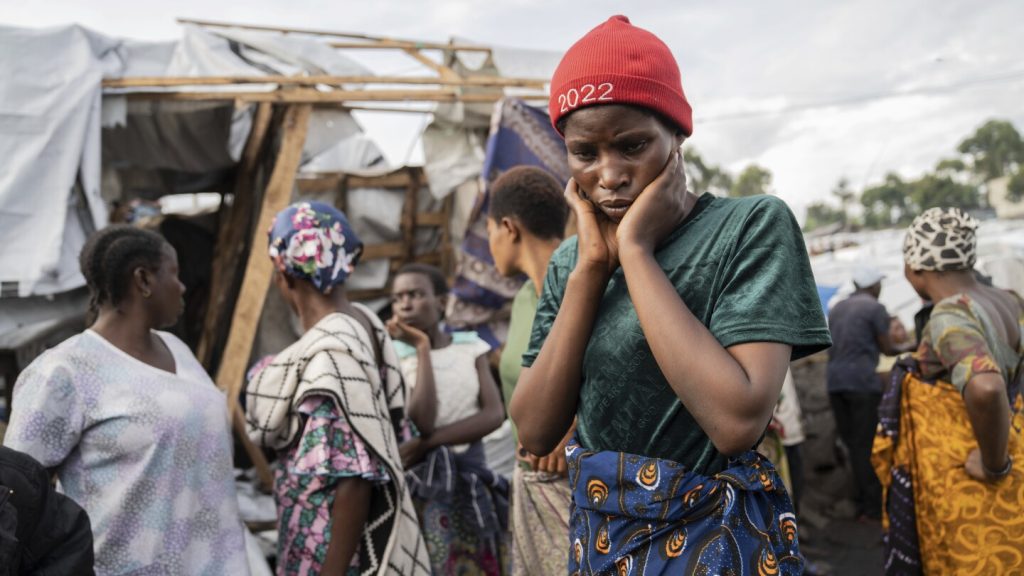The death toll in the bombings of two camps for displaced people in eastern Congo last week has risen to at least 35, with an additional two in critical condition, according to a local official. The attacks took place at the Mugunga and Lac Vert displacement camps in North Kivu state. The Congolese army and a rebel group known as M23 have blamed each other for the bombings, with the U.S. State Department accusing M23 and the army of neighboring Rwanda. M23, an armed group mainly made up of ethnic Tutsis, broke away from the Congolese army 12 years ago. Congolese President Felix Tshisekedi accuses Rwanda of destabilizing Congo by backing the M23 rebels, a claim that Rwanda denies.
The conflict in eastern Congo has resulted in one of the world’s worst humanitarian crises, with over 100 armed groups fighting in the region, most for land and control of valuable minerals in mines. Some groups are fighting to protect their communities, while others are accused of carrying out mass killings, rapes, and other human rights violations. The violence has displaced approximately 7 million people, including thousands living in temporary camps like the ones attacked last week. Many others are beyond the reach of aid, highlighting the dire situation in the region.
The ongoing conflict in eastern Congo has led to widespread devastation and suffering, with civilians bearing the brunt of the violence. The attacks on displacement camps further exacerbate the already dire humanitarian situation in the region. The international community, including the United Nations and the U.S. State Department, has condemned the violence and called for accountability for those responsible for the bombings. Efforts to bring an end to the conflict and provide assistance to those affected by the violence are crucial to addressing the humanitarian crisis in eastern Congo.
The accusations of involvement by the M23 rebels and Rwanda in the bombings highlight the complex nature of the conflict in eastern Congo. The involvement of multiple armed groups and neighboring countries in the conflict adds another layer of complexity to resolving the crisis and ensuring the safety and well-being of civilians in the region. Efforts to address the root causes of the conflict, including competition for resources and ethnic tensions, are essential to achieving lasting peace and stability in eastern Congo. The international community must work together to support peace initiatives and provide humanitarian assistance to those affected by the ongoing violence.
The bombings at the displacement camps serve as a grim reminder of the devastating impact of the conflict on civilians in eastern Congo. The targeting of vulnerable populations in these attacks underscores the urgent need for increased protection and support for displaced communities in the region. It is crucial for the Congolese government, neighboring countries, and international partners to prioritize the protection of civilians, uphold human rights, and work towards sustainable peace in eastern Congo. Addressing the root causes of the conflict and supporting efforts to promote reconciliation and stability are essential steps towards ending the cycle of violence and building a more peaceful future for the people of eastern Congo.
As the death toll continues to rise and more individuals are left in critical condition following the bombings, urgent action is needed to address the humanitarian crisis in eastern Congo. The international community must step up its efforts to provide assistance to those affected by the violence, ensure accountability for the perpetrators of these attacks, and support initiatives aimed at promoting peace and stability in the region. With millions of people displaced and vulnerable to ongoing violence, a coordinated and comprehensive approach is necessary to address the complex challenges facing eastern Congo and help build a more secure and prosperous future for its people.


